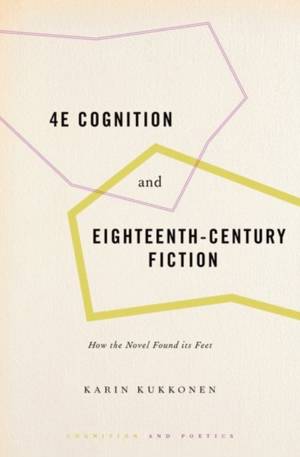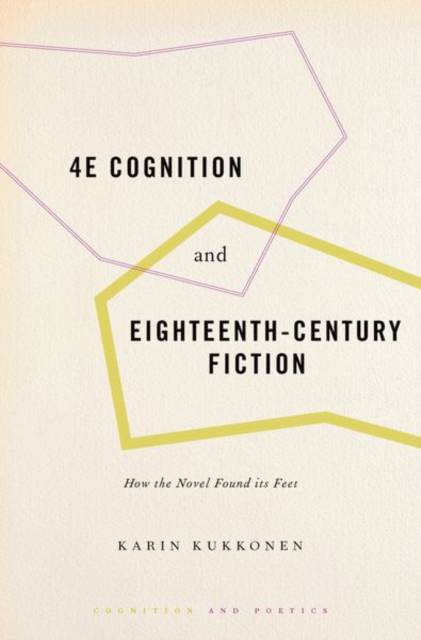
En raison d'une grêve chez bpost, votre commande pourrait être retardée. Vous avez besoin d’un livre rapidement ? Nos magasins vous accueillent à bras ouverts !
- Retrait gratuit dans votre magasin Club
- 7.000.000 titres dans notre catalogue
- Payer en toute sécurité
- Toujours un magasin près de chez vous
En raison de la grêve chez bpost, votre commande pourrait être retardée. Vous avez besoin d’un livre rapidement ? Nos magasins vous accueillent à bras ouverts !
- Retrait gratuit dans votre magasin Club
- 7.000.0000 titres dans notre catalogue
- Payer en toute sécurité
- Toujours un magasin près de chez vous
139,45 €
+ 278 points
Description
When the novel broke into cultural prominence in the eighteenth century, it became notorious for the gripping, immersive style of its narratives. In this book, Karin Kukkonen explores this phenomenon through the embodied style in Eliza Haywood's flamboyant amatory fiction, Charlotte Lennox's work as a cultural broker between Britain and France, Sarah Fielding's experimental novels, and Frances Burney's practice of life-writing and fiction-writing. Four female authors who are often written out of the history of the genre are here foregrounded in a critical account that emphasizes the importance of engaging readers' minds and bodies, and which invites us to revisit our understanding of the rise of the modern novel. Kukkonen's innovative theoretical approach is based on the approach of 4E cognition, which views thinking as profoundly embodied and embedded in social and material contexts, extending into technologies and material devices (such as a pen), and enactive in the inherent links between perceiving the world and moving around in it. 4E Cognition and Eighteenth-Century Fiction investigates the eighteenth-century novel through each of these trajectories and shows how language explores its embodied dimension by increasing the descriptions of inner perception, or the bodily gestures around spoken dialogue. The embodied dimension is then related to the media ecologies of letter-writing, book learning, and theatricality. As the novel feeds off and into these social and material contexts, it comes into its own as a lifeworld technology that might not answer to standards of nineteenth-century realism but that feels 'real' because it is integrated into the lifeworld and embodied experiences. 4E cognition answers one of the central challenges to cognitive literary studies: how to integrate historical and cultural contexts into cognitive approaches.
Spécifications
Parties prenantes
- Auteur(s) :
- Editeur:
Contenu
- Nombre de pages :
- 272
- Langue:
- Anglais
- Collection :
Caractéristiques
- EAN:
- 9780190913045
- Date de parution :
- 22-02-19
- Format:
- Livre relié
- Format numérique:
- Genaaid
- Dimensions :
- 236 mm x 163 mm
- Poids :
- 548 g

Les avis
Nous publions uniquement les avis qui respectent les conditions requises. Consultez nos conditions pour les avis.






